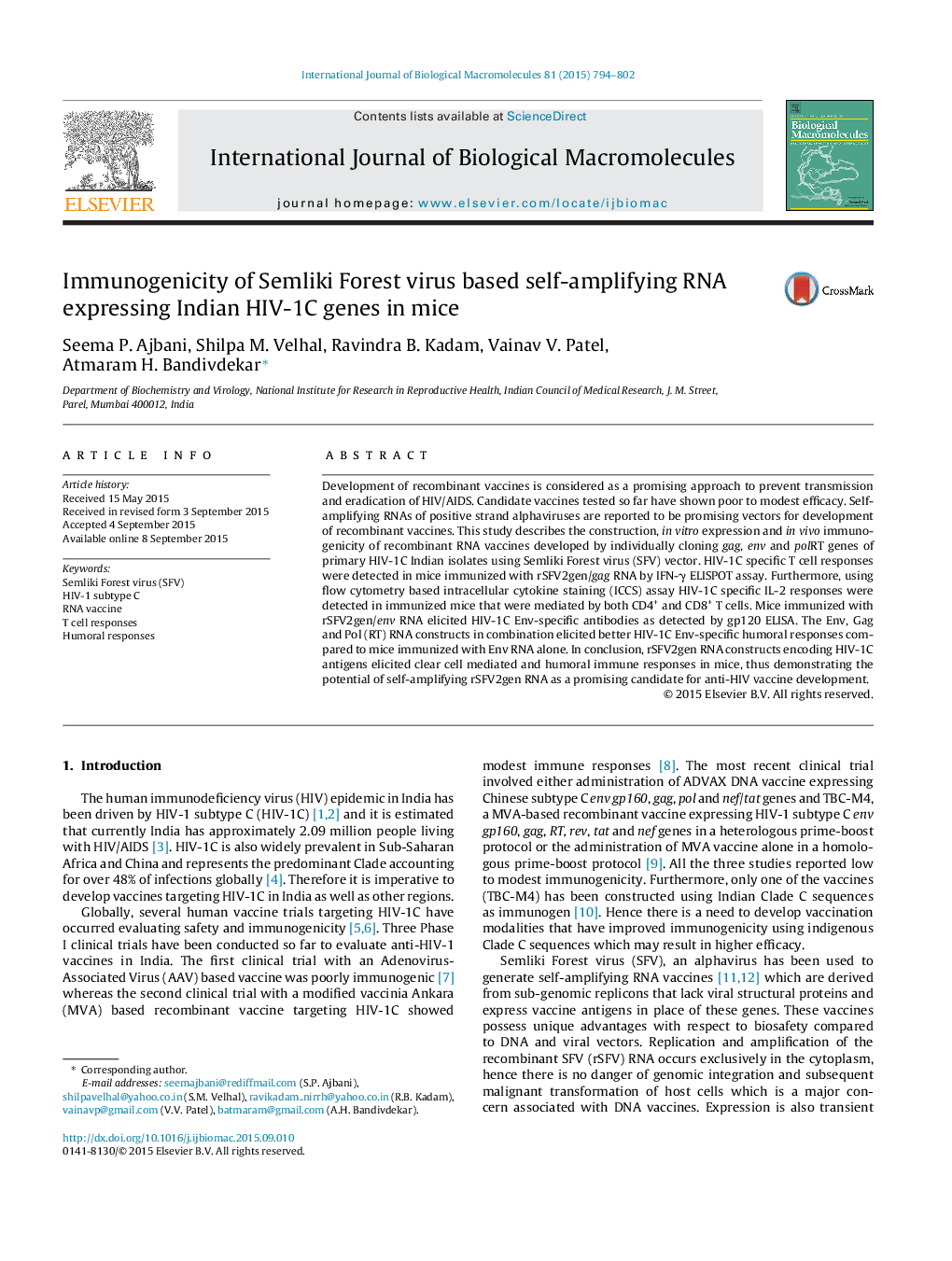| Article ID | Journal | Published Year | Pages | File Type |
|---|---|---|---|---|
| 8330747 | International Journal of Biological Macromolecules | 2015 | 9 Pages |
Abstract
Development of recombinant vaccines is considered as a promising approach to prevent transmission and eradication of HIV/AIDS. Candidate vaccines tested so far have shown poor to modest efficacy. Self-amplifying RNAs of positive strand alphaviruses are reported to be promising vectors for development of recombinant vaccines. This study describes the construction, in vitro expression and in vivo immunogenicity of recombinant RNA vaccines developed by individually cloning gag, env and polRT genes of primary HIV-1C Indian isolates using Semliki Forest virus (SFV) vector. HIV-1C specific T cell responses were detected in mice immunized with rSFV2gen/gag RNA by IFN-γ ELISPOT assay. Furthermore, using flow cytometry based intracellular cytokine staining (ICCS) assay HIV-1C specific IL-2 responses were detected in immunized mice that were mediated by both CD4+ and CD8+ T cells. Mice immunized with rSFV2gen/env RNA elicited HIV-1C Env-specific antibodies as detected by gp120 ELISA. The Env, Gag and Pol (RT) RNA constructs in combination elicited better HIV-1C Env-specific humoral responses compared to mice immunized with Env RNA alone. In conclusion, rSFV2gen RNA constructs encoding HIV-1C antigens elicited clear cell mediated and humoral immune responses in mice, thus demonstrating the potential of self-amplifying rSFV2gen RNA as a promising candidate for anti-HIV vaccine development.
Related Topics
Life Sciences
Biochemistry, Genetics and Molecular Biology
Biochemistry
Authors
Seema P. Ajbani, Shilpa M. Velhal, Ravindra B. Kadam, Vainav V. Patel, Atmaram H. Bandivdekar,
